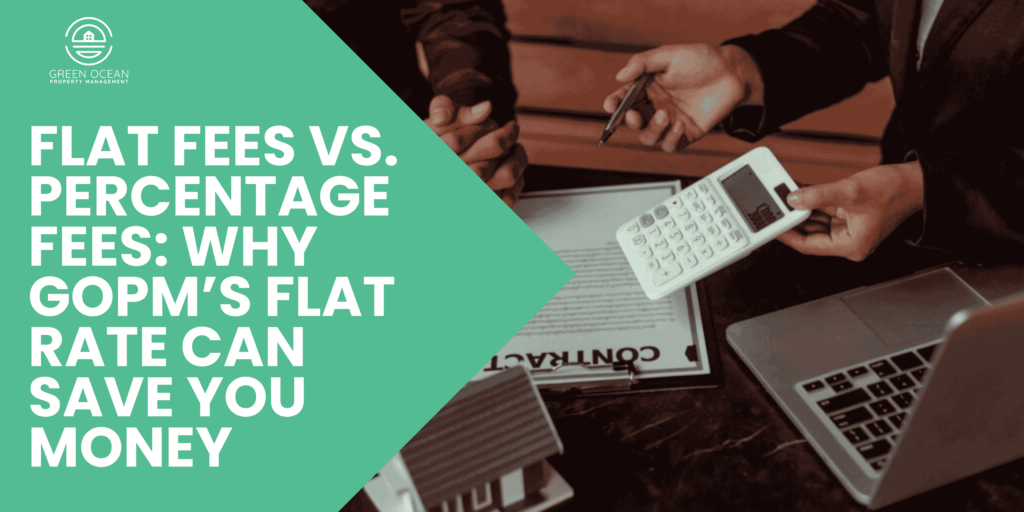Transform Your Rental Business with Effective Property Management
Reading Time: 3 minutesDiscover how to optimize your rental business with strategic property management. Streamline operations and boost tenant satisfaction effortlessly.

Table of Contents
Revolutionizing Rental Management: A Story-Driven Approach
Imagine a bustling city where Jane, a new property investor, envisioned her sprawling empire of rental properties. However, the reality was chaotic: tenant complaints stacking, maintenance requests piling, and rent payments dribbling in erratically. Jane’s vision seemed to blur into stress-induced headache—until she discovered the transformative power of a proficient property management strategy.
Navigating the property rental realm is fraught with challenges that can overwhelm even seasoned landlords. The urgency is real; as rental demands soar, the complex web of tenant relationships and maintenance tasks becomes harder to manage. This article will delve into actionable strategies to streamline your property management operations effectively. Whether you’re an individual landlord or running a property management business, these insights will empower you to regain control and maximize profitability.
Identify Your Core Challenges
Every property manager faces unique challenges, from tenant retention to financial management. Identifying these is the first step to solving them. Are you struggling with high tenant turnover rates? Perhaps it’s the financial side, like keeping track of rent payments and expenses. Whatever it is, these pain points need addressing to maintain a seamless property management operation.
For example, Sarah, a property manager in Phoenix, was bewildered by frequent tenant changes. She started using feedback forms to gain insights into why tenants were leaving. The answers were enlightening. By focusing on building stronger tenant relationships and consistently maintaining her properties, Sarah significantly reduced her turnover rate. Data from the National Multifamily Housing Council reflects this trend, revealing these strategic changes can improve retention by upward of 20%.
Technology: Your Ultimate Arsenal
Imagine managing all your properties from a single dashboard, alerts pinging for overdue rents, and maintenance requests. Technology plays an indispensable role in modern property management. Rental portals and management software can automate routine tasks, making your life easier and more productive.
Take, for instance, the widely used Appfolio, which integrates accounting tools, management functionalities, and online portals for tenants and landlords. This technology not only saves time but ensures accuracy in managing multiple facets of properties. A study by the Institute of Real Estate Management shows businesses using sophisticated property management systems reported 30% more efficiency than those relying on traditional methods.
Building Strong Tenant Relationships
At the heart of successful property management is the landlord-tenant relationship. Maintaining open communication channels with your tenants fosters trust and loyalty. For instance, email newsletters can keep tenants informed about policy changes or upcoming maintenance work, mitigating misunderstandings.
Here’s how Alex, a property manager in Seattle, addressed his tenant grievances. He implemented a fortnightly check-in via Zoom, allowing tenants to voice their concerns directly, making them feel heard and appreciated. This approach didn’t just improve satisfaction levels; it significantly reduced conflict incidences.
Effective Financial Management
Navigating the intricacies of financial management can be daunting. Organizing your finances helps in making informed decisions and setting realistic budgets.
Consider Paul who manages a portfolio of 20 properties. By implementing a robust financial management system that forecasts expenses and tracks revenue streams, Paul optimized his cash flow. Studies indicate that landlords who maintain clear financial records and embrace forecast analysis tend to be more stable and prepared for uncertainties.
Prioritizing Maintenance and Upkeep
Shirking on property maintenance can lead to more significant problems, affecting tenant satisfaction and retention. Regular inspections and prompt repairs demonstrate your commitment to providing a safe and inhabitable environment.
Jessica, overseeing properties in Little Rock, noticed an uptick in maintenance complaints. Quick to act, she scheduled quarterly inspections, catching potential issues before they escalated. This proactive approach not only preserved property value but also kept her tenants satisfied and loyal.
Leverage Professional Property Management Services
Sometimes even the best intentions need expert help. Hiring a property management service can relieve the day-to-day burdens and offer specialized insight into market trends and tenant laws.
When Mark reached 50 properties, he hired a local property management service. This partnership not only brought organization into his rental business but also ensured compliance with all legal requirements, thereby avoiding potential lawsuits.
Embrace Continuous Learning and Adaptation
Property management isn’t static; it’s a field that requires ongoing education and adaptation. By staying informed about industry changes and emerging technologies, you are better positioned to adapt effectively and maintain competitiveness.
Networking events, webinars, and certification courses can provide valuable insights. As Jessica, noted earlier, embraced these learning opportunities, she found herself constantly adapting her strategies, which contributed to her overall success.
Great property management transforms chaos into opportunity. Focusing on strategic improvements, embracing technology, nurturing tenant relationships, and enlisting professional help when necessary catalyzes growth and satisfaction across all fronts. Your empire can flourish with the right adjustments, elevating both tenant experiences and your peace of mind.
Understanding Property Depreciation: What Multi-Property Owners Need to Know
Reading Time: 3 minutesDepreciation is an accounting method used to allocate the cost of a tangible asset over its useful life. For property owners, this means gradually deducting the expense of purchasing and improving a property from their taxable income, reflecting the wear and tear or obsolescence of the asset over time. Why is it Important for…
What is a CAP Rate and How do you Calculate it?
Reading Time: 3 minutesBefore you get into the game of being a property investor, having enough knowledge and a sharp eye in choosing the right property investment will help you be successful. The key factor in buying the right investment property is to learn how to determine the value of an income-generating property. Not knowing how to choose…
Flat Fees vs. Percentage Fees: Why GOPM’s Flat Rate Can Save You Money
Reading Time: 2 minutesProperty management companies have different pricing models, and if you’re thinking of bringing one on board, this is an important factor to consider. Property management fees directly impact your returns, and choosing the right pricing model could mean saving thousands annually. So, the real question is whether a percentage-based fee or a straightforward flat fee…








